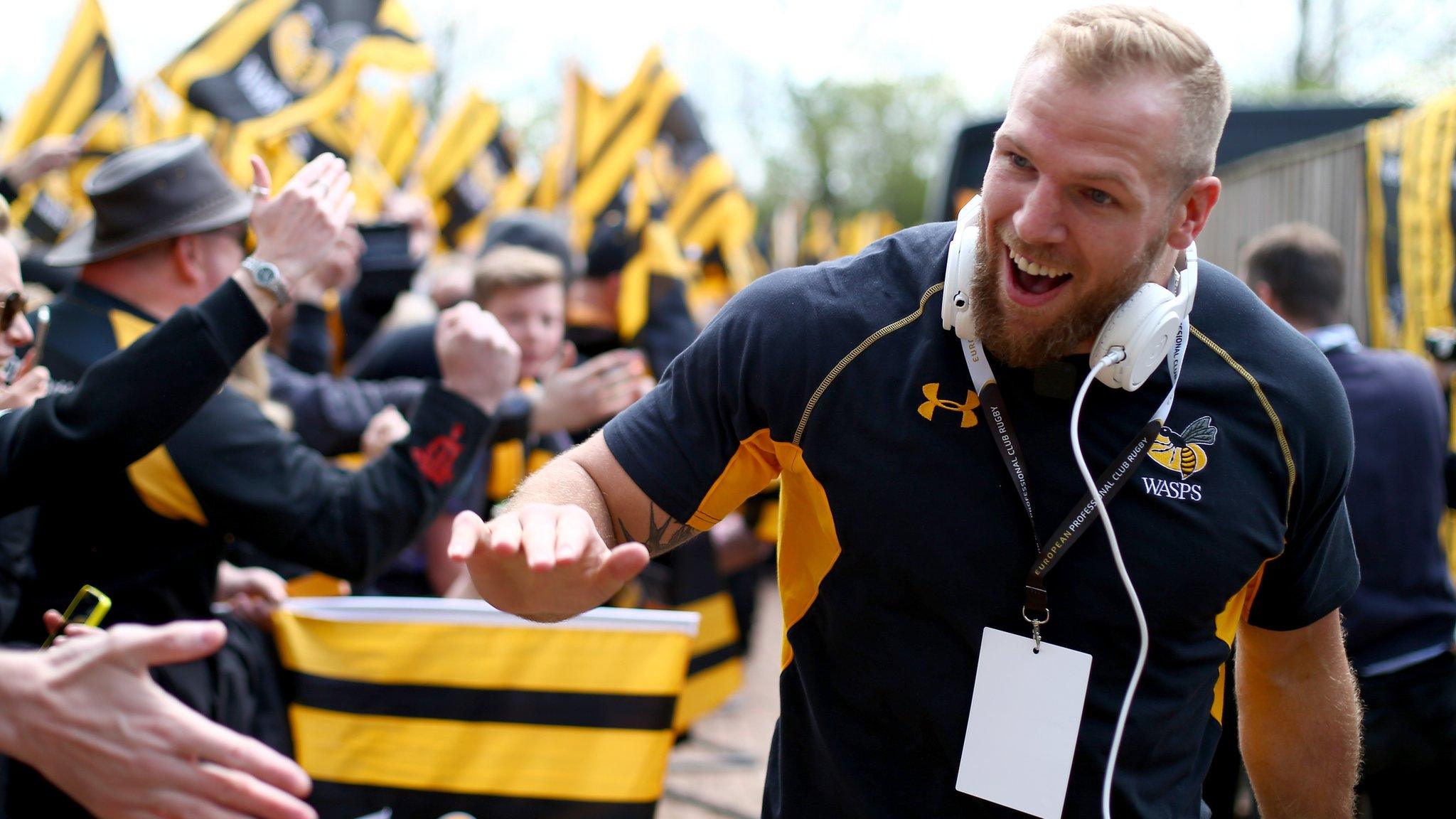England v South Africa: New season, new faces and new challenges for Eddie Jones
- Published
- comments
Jones explains England selection choices
Old Mutual Wealth Series: England v South Africa |
|---|
Venue: Twickenham Date: Saturday, 12 November Kick-off: 14:30 GMT |
Coverage: Live on BBC Radio 5 live with highlights on BBC Two (19:30) |
Call it second-season syndrome, call it the sophomore slump. It shouldn't be a worry for Eddie Jones's England team, except for one thing: after nine wins out of nine, isn't expecting perfection again this autumn asking a little too much?
The phenomenon is more than sporting whimsy. It is about regression to the mean. And the mean, for England rugby union teams and their coaches, is certainly not perfection.
Jones's predecessor Stuart Lancaster won four of his first five matches but then failed to win five of his next six. Previous head coach Martin Johnson lost five of his first seven, while Sir Clive Woodward's first win did not come until his sixth game in charge.
Against the three big southern hemisphere teams, two of whom England will be meeting again at Twickenham in the next month, Lancaster's record read: played 15, won three. Against South Africa, visitors to Twickenham this Saturday, the mean is even meaner: 12 matches over the past decade, not a single England win.
Jones has already provided two very good reasons to think it might be different - a first Grand Slam in 13 years, a first whitewash of Australia down under in history. Now comes the opportunity to underline those advances made during his first season in charge, to prove that his England are anything but average.
"The taste we've had of success and silverware makes you want more," says James Haskell, one of the players seldom central to the old regime but reborn under this one.
"All those wins from the Six Nations and in Australia are in the bank now. It has been about hard work and improvement since the end of the summer tour. Everyone got personal feedback, and it has been made clear to all of us that we each have to kick on."
Back to those averages. Woodward, so far the only England coach to win a World Cup, had a winning percentage across his eight-year reign of 71%. Lancaster finished with 61%, Johnson and Brian Ashton 55%.
Jones' 100% is both historically unparalleled and unrecognisable from the England performances of last autumn, when they crashed out of their own World Cup at the group stage.

Yet, with the Springboks in disarray, Fiji rank outsiders, Argentina sixth in the world rankings - England are second - and Australia thumped on home soil, it is not impossible his flawless streak may run on and on.
"The biggest message is not being happy with where we are at the moment," says prop Mako Vunipola, another man playing his best international rugby yet under the new regime.
"We have to keep improving every time we go out on the pitch. We want to improve every day.
"Eddie will send me texts to give me a nudge. So too will the coaches. I'll talk to coaches at my club Saracens too, but Eddie will talk about areas I need to improve on.
"You need all 15 players to be complete players, and that's the difference between being a very good side and being world class. We want to be the best we can be, and the time is now."
That drive for improvement includes Jones' coaching team too. Having had short-term input for his backs from Australian legend Glen Ella, the back row from Wallabies star George Smith and his fly-halves from Jonny Wilkinson, the latest temporary recruit has been Jason Ryles, the defence coach for Australian rugby league side Melbourne Storm.
You might think that would put the nose of full-time defence coach Paul Gustard out of joint. You get the sense it wouldn't matter to Jones if it did. No-one stands still, not even his lieutenants.
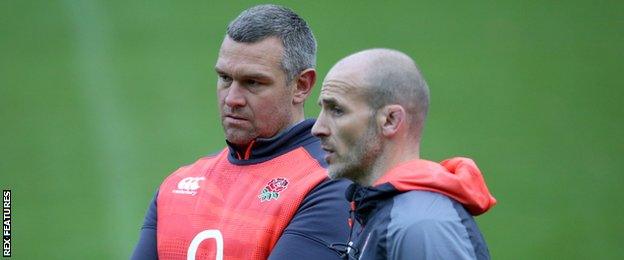
Paul Gustard (right) welcome the input of Ryles, saying "as a coach I need to develop too"
"I welcome it," Gustard told BBC Sport. "It's brilliant for me.
"The idea is we're trying to create a world-class environment in which the players can learn, so as a coach I need to develop too.
"Jason has had 250 NRL games, 12 Australia caps, eight State of Origin games. And one thing NRL teams can do is tackle. I went over to New Zealand Warriors, I went to Wigan, I went to Warrington. All trying to see what they do in their sport that's different to ours, and try to mesh those things together to make us more effective as a defensive team.
"It's not so much keeping momentum up, it's wanting to get better. And it's fun. If you're not challenging yourself or being challenged, you can become lazy and stuck in a routine. The key to get better is to challenge routine. Seek advice if you don't know the answers."
Jones was fortunate in his first season to have almost a full complement of players to choose from, excluding serial injury victim Manu Tuilagi.
Not now. In addition to Haskell, man of the series in the summer, he is missing the inspirational Maro Itoje, first-choice wingers Anthony Watson and Jack Nowell, lock George Kruis and four other back-row options.
It has meant both new faces and new combinations, a fresh test of the coaching credentials that have seen him take the Wallabies to one World Cup final and help the Springboks win the next, work at two different Super Rugby teams in Australia and in England with Saracens, and then transform Japan from romantic underdogs to slayers of the once-mighty Boks.
"One of Eddie's key strengths is that he knows how to motivate and manage different individuals," says Haskell.
"He understands that each player learns and reacts in different ways, that some need the carrot and some the stick.
"He's the sort of coach who captures your imagination. His own work ethic means he pushes others around him to reach the same levels, and he constantly encourages all the players, whatever their age or experience, to strive to be better.
"He is very clear on what is and isn't responsible, but he loves to see players be themselves as well as training themselves into the ground. Everyone has to raise their standards for fear of being left behind."
Lancaster's regime was fatally weakened by his side's vulnerability at home. Eight times in four seasons his England lost at Twickenham. Woodward, by contrast, was beaten only four times at home in eight years.
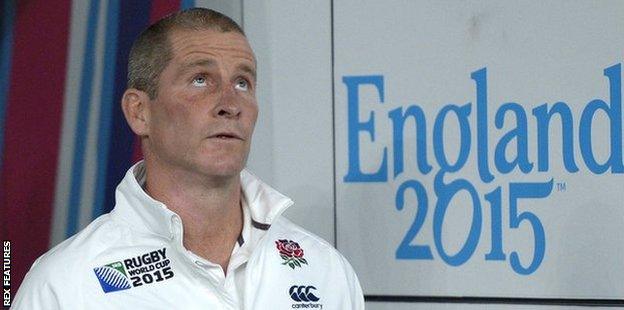
Stuart Lancaster's England reign was effectively ended by two World Cup defeats at Twickenham, by Wales and Australia
For Jones it is a new challenge on a still unfamiliar front. Only three of his first nine matches have been played in south-west London.
His players are already converted, not least because they can see the fruits of his labours all around. After 12 years in which only two England players were shortlisted for the IRB's World Rugby Player of Year award, three - Itoje, Billy Vunipola and Owen Farrell - have made the 2016 list.
"When Eddie came in at the start and told us we were eighth in the world for a reason, it forces you to be very honest in where you are as well as where you want to be," says Haskell.
"He keeps it simple. You are encouraged to enjoy what you're doing, and you're allowed to express yourself, but there can be no taking it easy, because the honesty reminds you that you have only won one Six Nations, that you have never beaten southern hemisphere teams consistently.
"All teams lose, even the very best. If you have a good foundation, even when the losses come, you can still kick forward. If you win, you still have to work at what you're good at. You still have to find ways to improve."
For the latest rugby union news follow @bbcrugbyunion, external on Twitter.
Subscribe to the BBC Sport newsletter, external to get our pick of news, features and video sent to your inbox.
- Published10 November 2016
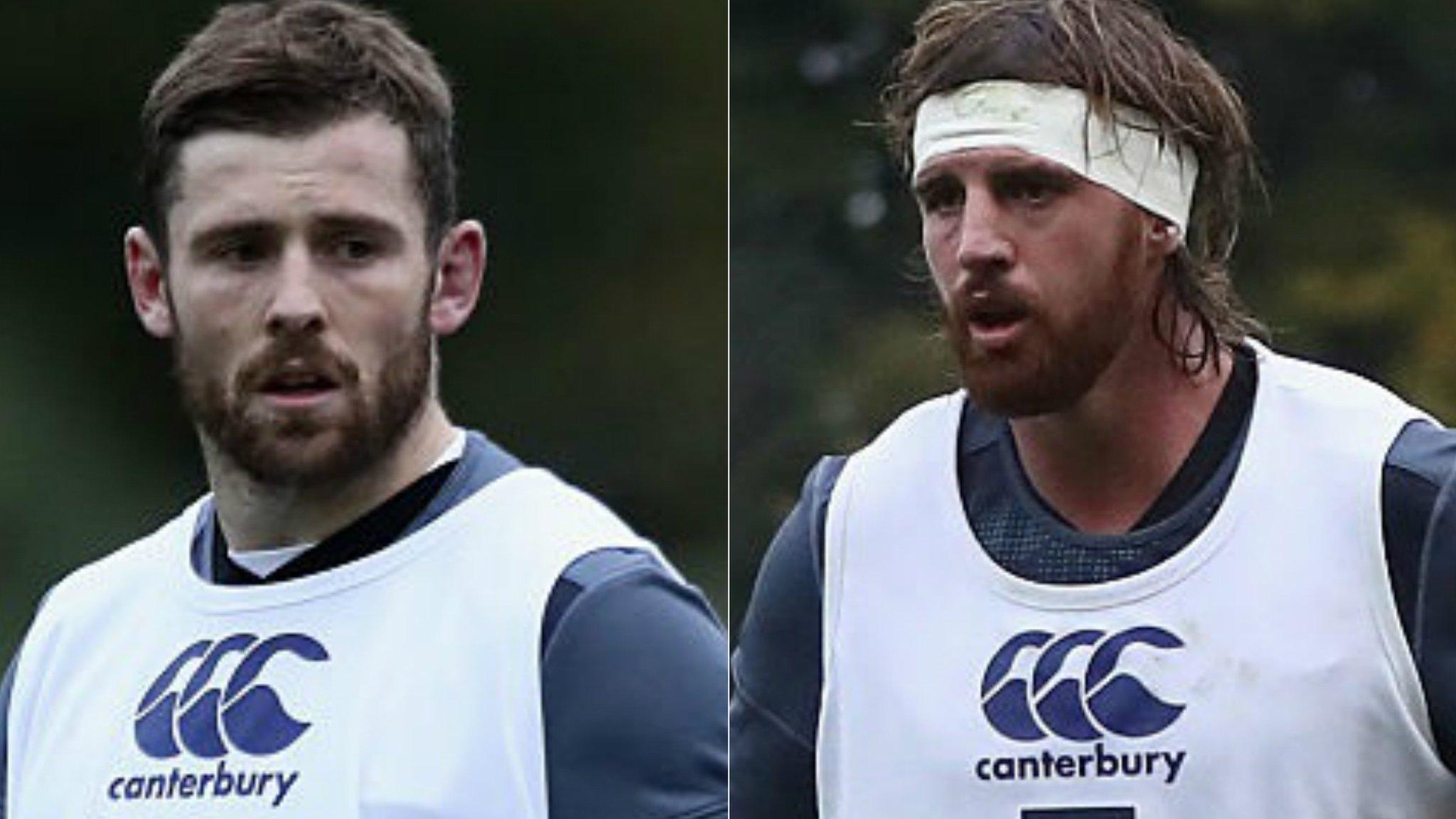
- Published8 November 2016
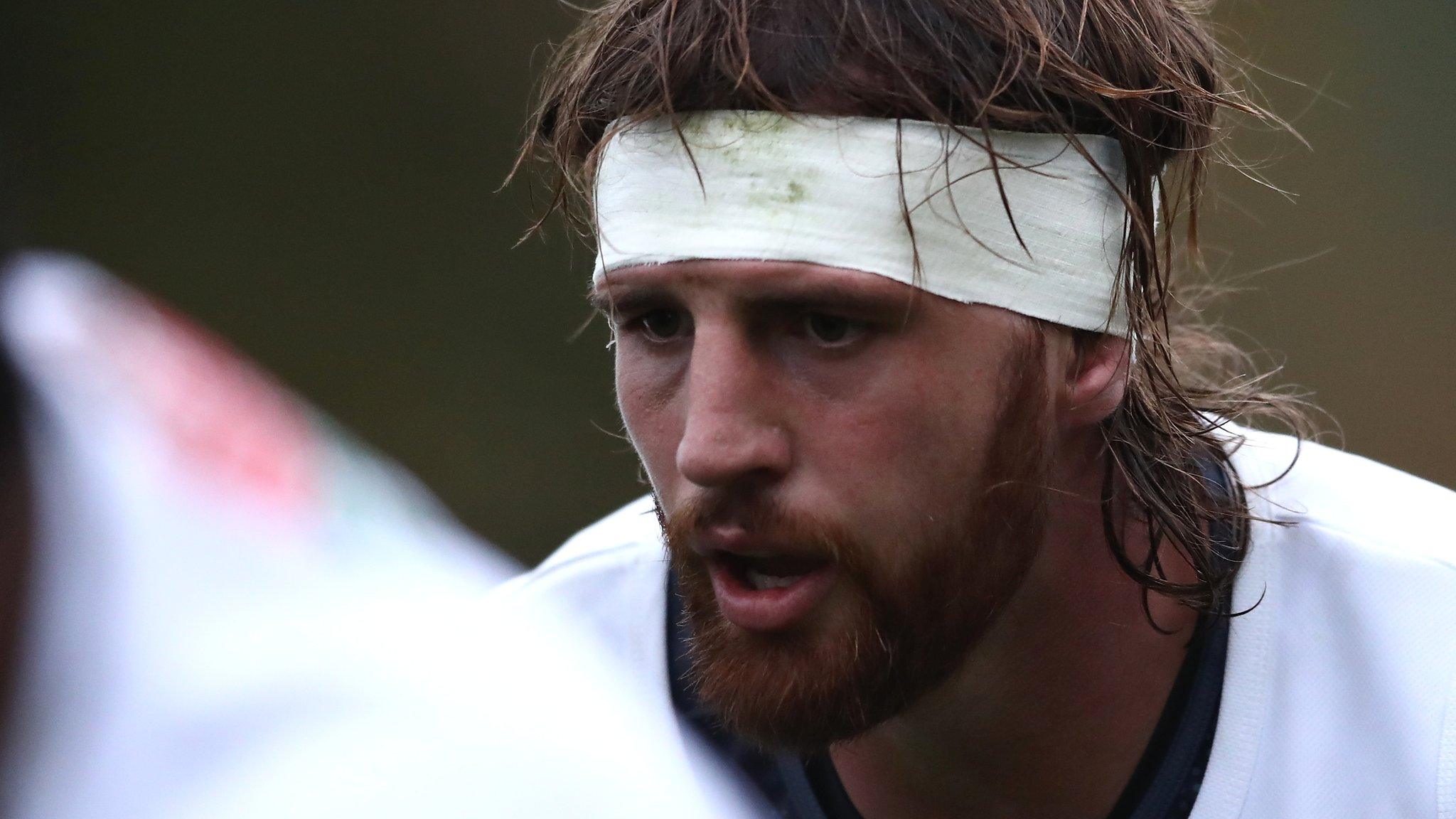
- Published8 November 2016
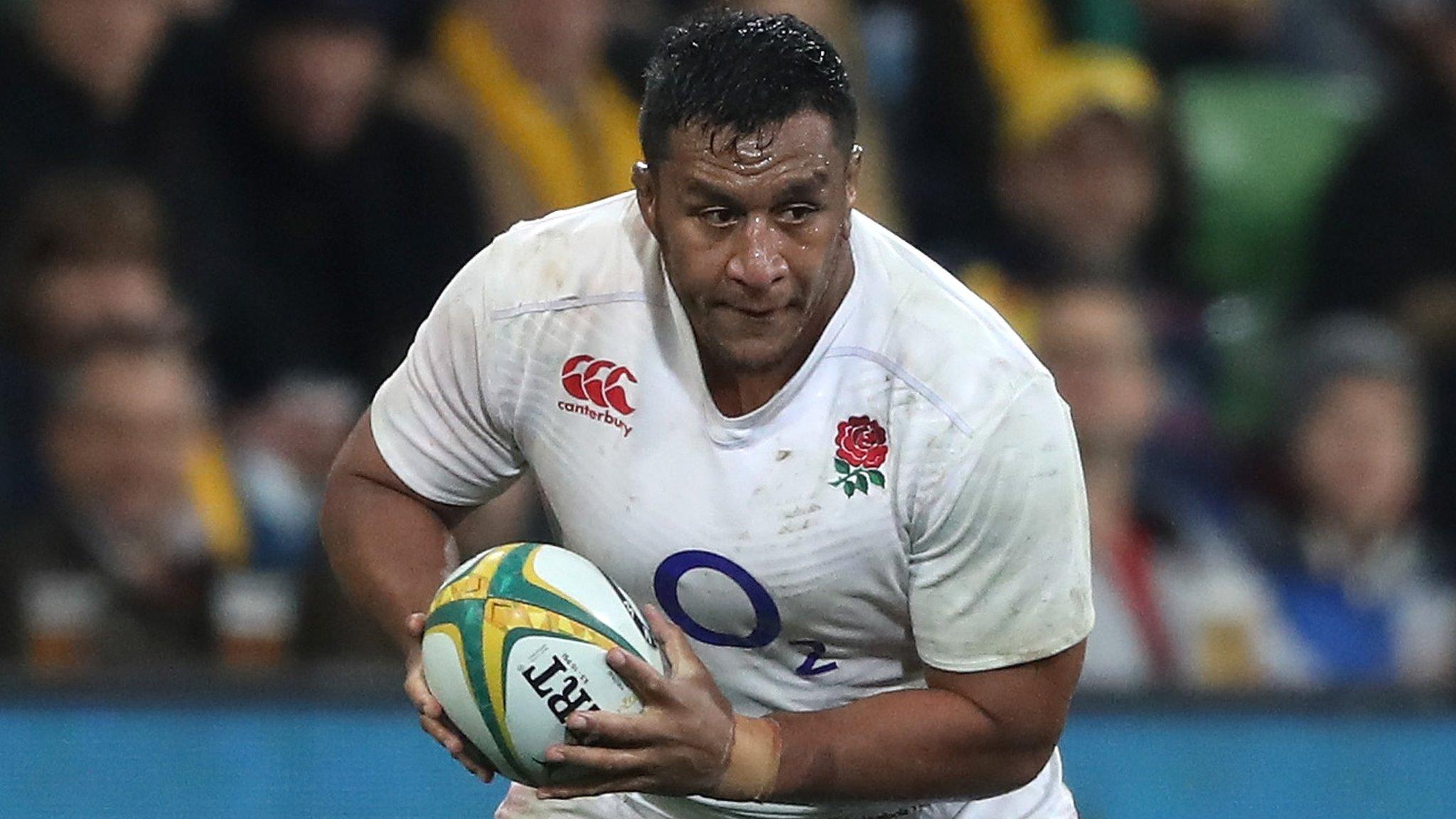
- Published7 November 2016
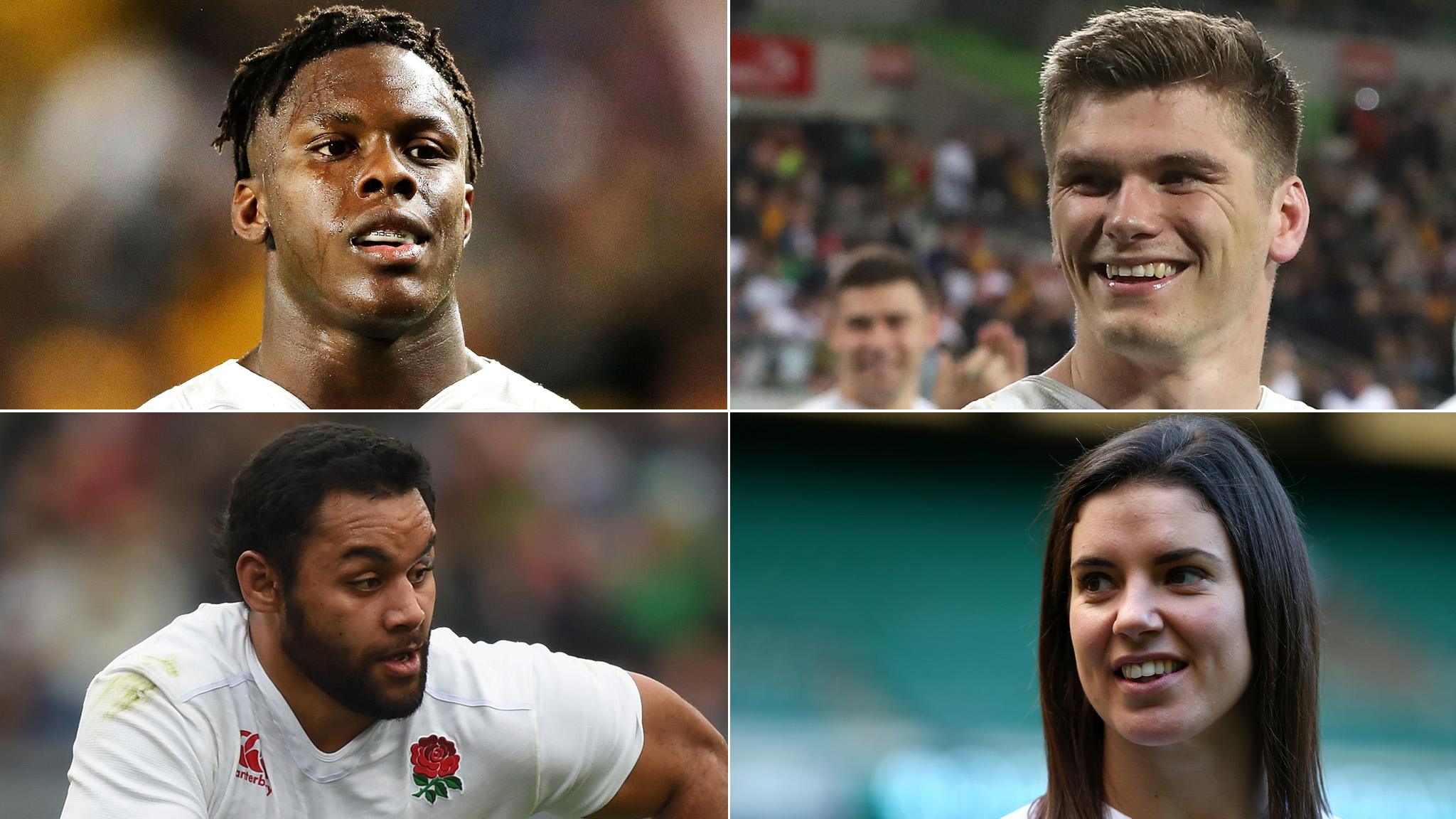
- Published7 November 2016
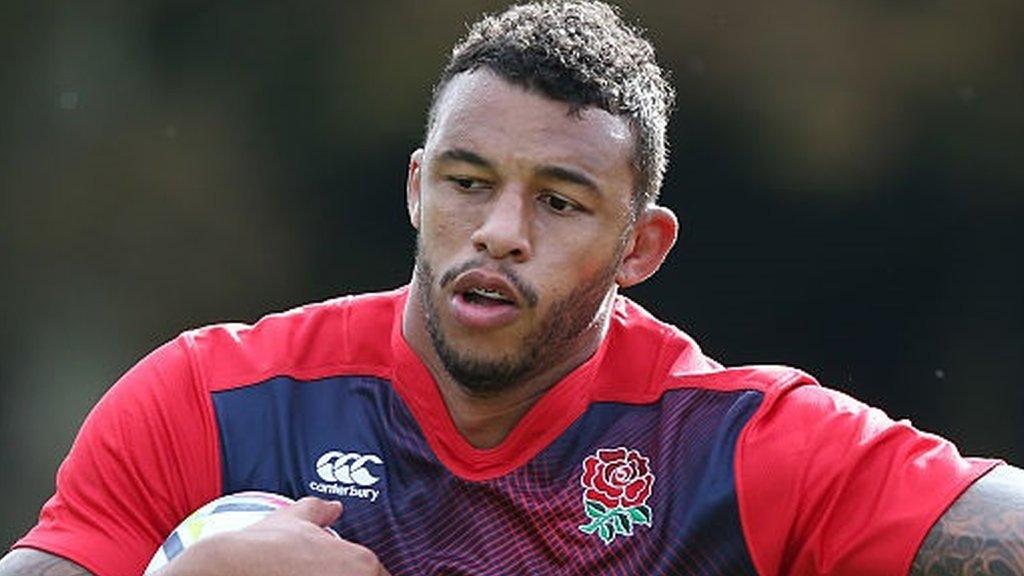
- Published4 November 2016
